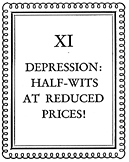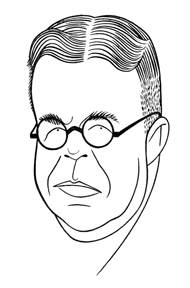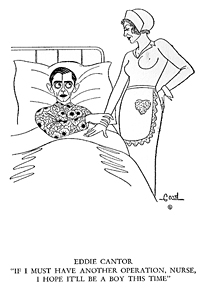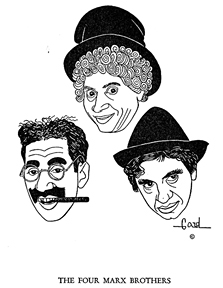Here are 10 things you should know about Glenda Farrell, born 121 years ago today. She exhibited a facility throughout her career for playing sassy, likable dames.
Tag: George Jessel
10 Things You Should Know About Nancy Carroll
Here are 10 things you should know about Nancy Carroll, born 118 years ago today. She became a big star during a brief film career that was bracketed on both ends by stage success.
Times Square Tintypes: Owen Davis
CURSE YOU—JACK DALTON!
In Your Hat, pt. 12
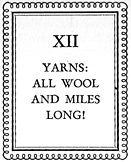
| If you took a rabbit out of those suckers’ hats They would squawk just the same: They all have two strikes on them When they are born. TEXAS GUINAN
|
“May every hat check bring you a fat check—and may no meanie neglect my Renee—who never wrecks hats each time she checks hats—Frances Williams.”
“Oh, look, I am in your book—thanks for letting me.”
“To Renee, who expects something clever from me but won’t get it.”
“To Renee, from her worst customer.”
“To a real and sweet girl, with loads of knockouts.
Tony Canzoneri,
Lightweight Champion of the World.”
“To Renee—
“Who takes what you give graciously. All life is a game of give and take. For what she takes she gives in a return a smile, a cheerful greeting and your belongings. May you go a long ways and prosper. Keep smiling Renee, it’s what we all go for.”
“To Renee—
Duchess of Sardi,
from
Baron George Jessel,
Colonel of the Bronx Grenadiers
And Vis-count of Brownsville.”
“You’ll always be Miss Shapiro to me—one of my best yarns. Sidney Skolsky
P.S. She sleeps in the raw!”
“My hat’s off to you. (Get it?) Je parle français aussi. (I hope that’s right).”
“My autograph I here inscribe,
A member of the organ tribe
Jesse Crawford,
Poet (?) of the Organ.”
“Keep your face towards the sun and the shadows will fall behind you.”
“A mon amie Renee en souvenir des Ziegfeld Follies 1931.”
“A hat girl who has more in her head than all the brains those hats cover. A little princess on a door mat—An oriental pearl in a suffocating shell—a ruby in a musty purse, but watch her.”
“To Renee. In memory of my first daughter of four kilos.”
“Because I like red-heads.”
In Your Hat, pt. 11
